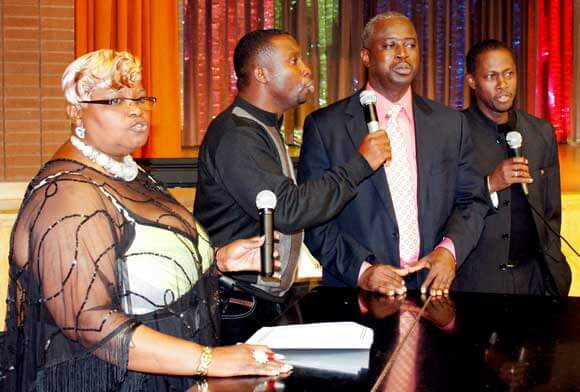Indeed, there could be precious little by way of rejection or dispute in response to the news that followed the death in Trinidad earlier this month of Makandal Daaga.
The departure of a guy who spent considerable time in Trinidad learning what gets things done is what could be called early Makandal Daaga. His death on Aug. 8 at age 81, wrapped the end of one of the personalities who for a few decades was an important contributor to the black power movement in Trinidad and Tobago.
It’s clear that Daaga developed his strong penchant for the working class at an early age. After a few years spent putting a tested plan in order, he launched what was supposedly the main business of the operation — an emphasis on what’s best for African people. It was, in a sense, Daaga’s declaration about what superseded all other considerations. There was, of course, total awareness by Daaga and his minions that there would be no shortage of folks joining in this crusade. During his time at university in Trinidad, Daaga became very involved in campus issues, adding to his reputation as one for whom confrontation came naturally. Likewise, when a sticky issue developed in Canada, when Trinidadian students were involved in a dispute that ultimately caused several of them to be thrown out, Daaga became a voice constantly heard on that major confrontation.
When Trinidad and Tobago, responding in 1989 to continued rioting that seemed capable of destabilizing the government, a state of emergency was announced. Daaga was one of several locked up in jail as a result. It was what could be seen as what typically got Daaga’s juices going.
Clearly, it was Daaga’s preference, and those who were his team leaders, that somehow, what they presented to the Trinidadian electorate would be precisely what appeals to voters. Unfortunately, in real life it played differently. The bottom-line reality was that most folks would have failed to see what possible advantage there would be for advocating the scale of protests being suggested. And for many, it simply did not make sense to move in that direction.
In these circumstances, it wasn’t unexpected that Dr. Eric Williams, the decades-long leader of the government in Trinidad, wasn’t one of Daaga’s favorite people. There’s no doubt that what Williams and company had established as a going standard for their declared mission would be difficult to Daaga and his crew to make headway. Williams remaining in office until his death in 1981, so it was clear who got the better of those exchanges…such as they were.
Of course, no one who was for such a long time involved in trying to better the lives of so many couldn’t possibly be considered other than hugely successful. Without a doubt, Daaga rubbed many folks the wrong way. What mattered, of course, was that there were indeed those who did support him, never mind being a minority.
In fairness, mention should be made of a particular connection made by Daaga late in his game, when he declared himself and his followers’ support of the Kamla Persad-Bissessar regime in the Trinidad election campaign six years ago. What resulted, after Bissessar and her people won the election, with Daaga earning himself a cabinet post, was an administration that within a couple of years seemed quite a bit different than expected. Daaga’s much noted decision of having no comment as the Bissessar atrocities dragged on, was clearly not one of his stellar moments as a political standout.
Daaga would have retained his image as a champion of those who reject what is not permissible, had he chosen to respond to Bissessar and company as one would have expected.
























